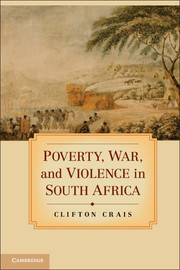4 - The Politics of Land and the Crises of the Twentieth Century
Published online by Cambridge University Press: 05 June 2012
Summary
In the previous chapter, I offered evidence that prosperity and systemic poverty emerged conterminously and marked the rise of fundamentally new historical patterns. These patterns began during or immediately after conquest, prior to long-distance labor migration associated with South Africa's mineral revolution, and before the introduction of legislation scholars have identified as central to the creation of a racist, labor-repressive economy. Violence was everywhere associated with subsistence crises– starvation– as well as the death that is war. As people struggled to put their lives back together, they confronted new rulers, new policies that entailed taxes paid in cash, and the increasing presence of European traders who were willing to sell food and goods and to loan money. They faced the question of what to farm and what to eat. Maize cultivation offered ready carbohydrates and a way of generating cash. By this mechanism, food, including subsistence requirements, became monetized.
The implications of the argument extend beyond periodization, the shifting of dates one way or another. One aspect of the peasant studies literature was its marked teleology, which it shared more generally with historical materialism as well as liberal models of economic change, including modernization theory. Africans moved from subsistence cultivators to colonial peasants and then became workers, in one degree or another. The endpoint, history's telos, was wage labor and working-class consciousness, a capitalist or post-capitalist modernity. This arc of historical change has been the conventional way by which scholars organized South Africa's past.
- Type
- Chapter
- Information
- Poverty, War, and Violence in South Africa , pp. 122 - 149Publisher: Cambridge University PressPrint publication year: 2011



